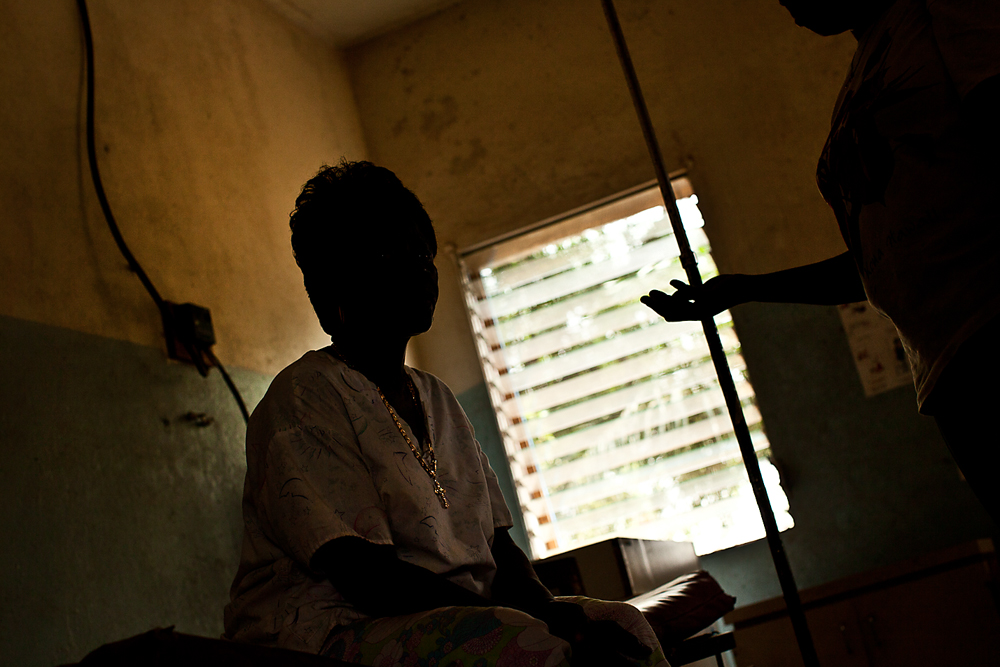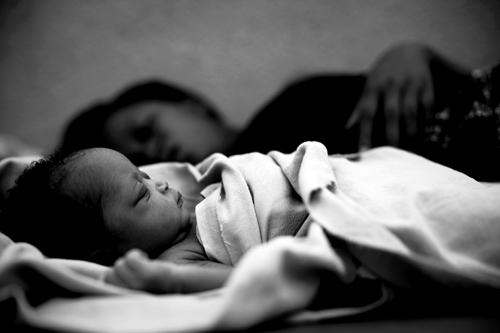
I am Mae Azango of Liberia, a journalist for FrontPage Africa newspaper and New Narratives. I am writing on maternal health and midwives in Todee District, about three hours by car from the capital city of Monrovia. This district is in Montserrado County and when I recently visited the area, I found people living and doing things in the traditional manner of rural Liberia.
My story is about the cultural practice of forcing women to confess to extra-marital affairs when medical complications arise during delivery.
This is still being practiced today, endangering women with complications who live in rural areas far from clinics.
I faced the same thing 21 years ago, when I was an inexperienced teen mother. During delivery of my first child, I was bleeding a lot and I was forced to confess to the crime of an extra marital affair that I was innocent of. This practice almost caused my death.
The shocking part about this practice is that traditional midwives are still holding onto it today, a generation after I experienced it.
When I visited the Gobah Clinic in Todee District, John Flomo, the medical officer there, told me he was disappointed that some untrained midwives were still carrying out several harmful practices. He said that women in labor were pressured to make these false confessions, and that midwives sometimes forced the pelvis open, among other medically unsound practices.
Many of the midwives I met in Todee denied ever having any woman die during delivery throughout their many years of experience as midwives. But Flomo, who is a trained officer, told me about the recent death of one patient he was helping.
According to Flomo, the patient, who had complications, was brought to the clinic at the last minute and died shortly after her arrival.
If a trained medical officer could experience the death of a patient, what about these traditional midwives who did many deliveries before getting any kind of training?
My story will also consider the challenges faced by trained midwives in trying to convince traditional midwives to take difficult cases to the clinic in Todee District.
Many of the midwives who were trained by a health organization called CHAL have been advised to take difficult cases to the clinics instead of performing the delivery in their communities. But these trained midwives are finding it hard to stop other midwives from risking the lives of women giving birth in these communities.
The trained midwives, who are called Trained Traditional Midwives, are asking the Ministry of Health and Social Welfare to enforce a law to stop midwives from carrying out unsafe deliveries. Any midwife found violating the law within the villages would be fined LD $1,500 (about US $10) and banned from practicing, while the patient would pay LD $1,000.
Mae Azango is a fellow of New Narratives, a project supporting independent media in Africa.





